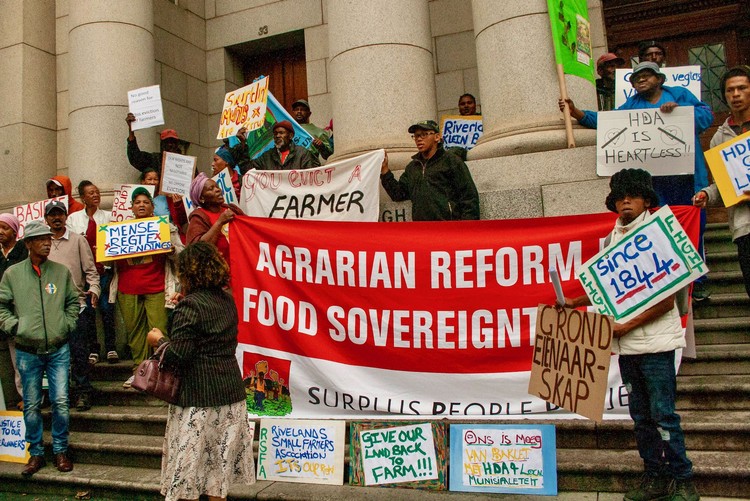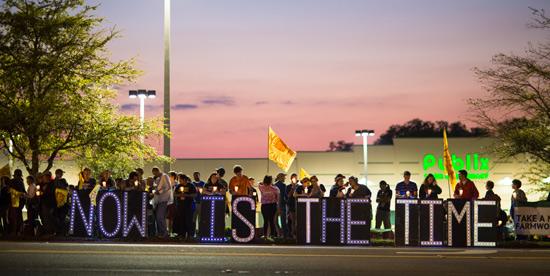
Julia Quecaño Casimiro
It turns out it’s not the meek who shall inherit the earth, but rather those who have been mistakenly deemed as meek by the seemingly powerful. This is especially true of those who work the earth, day in and day out. Consider the tales of Julia Quecaño Casimiro and Veronica Baleni. Julia Quecaño Casimiro is a seasonal or migrant farm worker in England; Veronica Baleni is a small-scale farmer in South Africa. Consider their stories and imagine the conversation their tales weave together.
Julia Quecaño Casimiro is Bolivian. She hopes to study biochemistry. To pay for her studies, she went to England to work as a cherry picker, where, the recruiters told her, she would earn about £500 a week and that she would have to repay no more than $1,000 , or £800, for the flight. After a month, when Casimiro left the farm, she was broke and homeless. Last week, she sued her employers, Haygrove, claiming unlawful deduction of wages, unfair dismissal, discrimination and harassment. Haygrove is one of the UK’s biggest fruit producers. At first, she was given no shifts, then barely given a shift the following week. Then Haygrove told the workers they had to pay £1,500 in six weekly £250 instalments for their flights to the UK. For many, that demand was the final straw. When government inspectors visited Haygrove, they found and reported numerous violations. The State did nothing. So, last week, Julia Quecaño Casimiro filed a complaint, becoming the first person on a seasonal worker visa to take a farm to an employment tribunal.
Julia Quecaño Casimiro had worked before on farms, in Bolivia and Chile, but she had never experienced the kind of intimidation and exploitation that she saw and was subjected to at Haygrove. Julia Quecaño Casimiro’s parents are small-scale farmers in Bolivia. She grew up on farms and has worked on numerous farms. Julia Quecaño Casimiro knows a thing or two about how farms should be run. She also knows what slavery is: “As soon as I started, I saw that it was exploitation. It was modern slavery.”
Veronica Baleni is a small-scale farmer in Riverlands, near Malmesbury, about 45 minutes by car from Cape Town. Veronica Baleni is one of over 100 small-scale farmers who work on a large piece of land in Riverlands. Many have been working this land for generations, in some cases for over a century. Veronica Baleni grows vegetables and has over 200 fruit trees.
The land is owned by the government’s Housing Development Agency, HDA. In May 2022, HDA initiated eviction proceedings, at first allegedly against three farmers but ultimately against the whole population. The farmers resisted, secured legal representation and went to court. On Monday, the Judge in the Western Cape High Court ordered HDA to withdraw their application for eviction and strongly urged the agency to enter into “meaningful engagement” with the community. According to Veronica Baleni, the real impediment for the farmers, both as farmers and as citizens of the Republic of South Africa, is ownership of the land.
In both instances, the ones threatened are assumed, by their aggressors, to be powerless, uninformed, helpless and hopeless. That couldn’t be further from the truth. Workers know the score and they know abuse, exploitation and slavery when they see it. Small-scale farmers know that those who work the land have a right to fully inhabit the earth on which they walk, in which the toil. The fruit of one’s labor must include and support the dignity of those who labor, from the fruit farms of the United Kingdom to the fruit farms of South Africa and beyond.

Farmers celebrate their victory in court
(By Dan Moshenberg)
(Photo Credit 1: The Bureau of Investigative Journalism / Nacho Rivera)
(Photo Credit 2: Groundup / Liezl Human)

